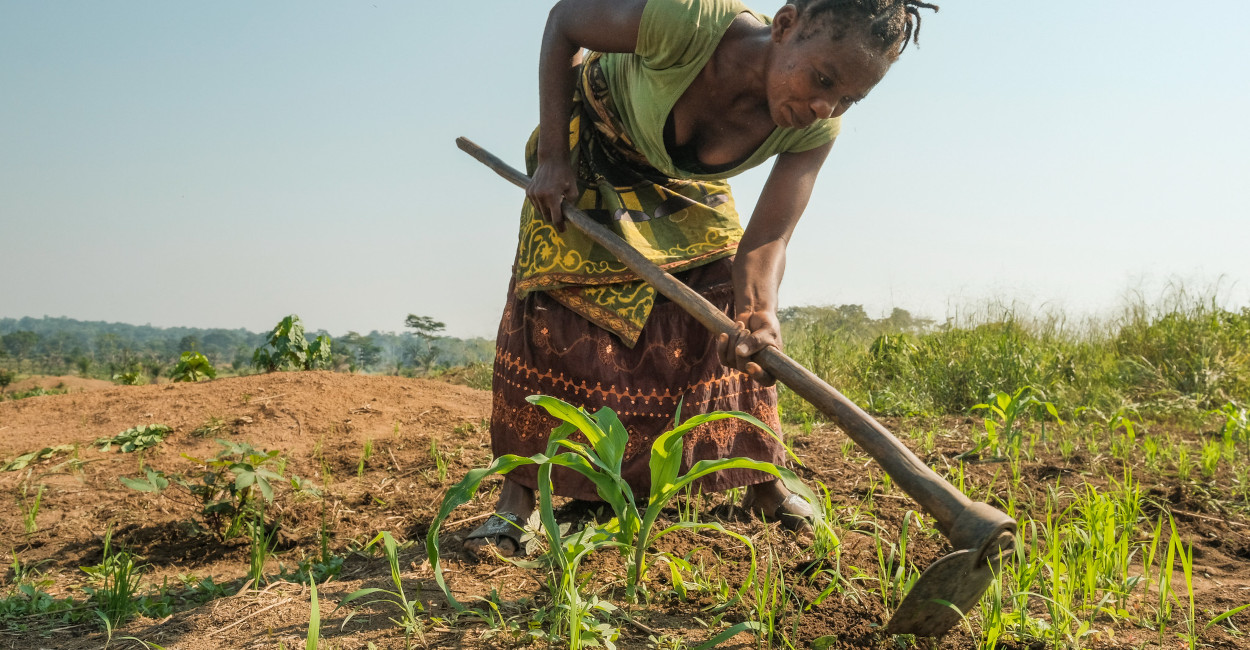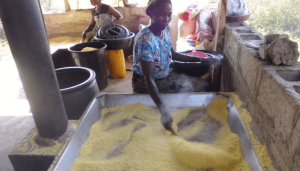Key Takeawy
Not only is environmentally friendly local farming in Africa vital for sustainable food production, but it also greatly helps to preserve the great biodiversity and cultural legacy of the continent. African farmers may get more food security, environmental protection, and economic development by adopting conventional techniques and adding contemporary sustainable technologies.
Food security and cultural legacy of Africa have traditionally revolved around local farming across the continent. Growing environmental issues need for sustainable, environmentally friendly methods in local farming more than ever. Adopting environmentally friendly agricultural techniques is essential for preserving natural resources, improving food output, and guaranteeing the long-term survival of farming communities in Africa, where a sizable fraction of the population works in the field. Examining the ideas and methods of environmentally friendly local farming in Africa, this paper explores its value, difficulties, and possibility for a sustainable future.
Value of Sustainable Local Agriculture in Africa
Deeply ingrained in African customs and cultural practices is local farming on the continent. But as food demand rises and climate change affects becoming more severe, conventional agricultural techniques by themselves are not enough to address these problems. By combining conventional knowledge with contemporary agricultural methods, environmentally friendly local farming in Africa offers a sustainable answer. By reducing the use of dangerous pesticides, saving water, and thus maintaining biodiversity, this method not only guarantees that farming stays viable for next generations but also helps save the environment.

African Eco-Friendly Local Farmings Ideas
Eco-friendly local farming in Africa is based on several key principles that focus on sustainability, environmental protection, and community empowerment. These principles include:
Healthy soil is the basis of successful farming; sustainable soil management is Cover crops, organic fertilizer, and crop rotation—among other sustainable soil management techniques—help to preserve soil fertility and stop deterioration in Africa. These methods also help to lessen the need for chemical fertilizers, which could damage the surroundings.
- Water Conservation
Many areas of Africa struggle greatly with water shortage. Using drip irrigation, rainwater collecting, and mulching among other methods, environmentally friendly local farming in Africa stresses effective water usage. These techniques provide enough moisture for crops, assist to minimize runoff and save water.
Africa has a great variety of plant and animal species, hence preserving biodiversity. By means of indigenous crop development, the use of natural pest management techniques, and habitat conservation, environmentally friendly farming approaches help to preserve this biodiversity.
- Reducing Chemical Use
Environmental damage and human health may suffer from the misuse of pesticides and chemical fertilizers. In order to lessen dependency on dangerous chemicals, environmentally friendly local farming in Africa promotes the use of organic inputs like compost and natural insect repellant agents.
Local farming in Africa is a community-based hobby rather common in Africa. Emphasizing the requirement of include local people in decision-making procedures, environmentally friendly agricultural methods guarantee that their methods complement local demands and customs.
Obstacles African Eco-Friendly Local Farmers Face
Eco-friendly local farming in Africa has various difficulties even if it has advantages. These include:
- Climate Change
Local farming in Africa suffers greatly from the consequences of climate change, including erratic weather patterns, floods and drenches. Changing with the times calls for the creation and acceptance of robust agricultural methods able to resist environmental pressures.
Many African smallholder farmers lack the means required to use environmentally friendly agricultural methods. This include availability of water-saving technology, organic fertilizers, and instruction in sustainable agricultural methods. Widespread acceptance of environmentally sustainable local farming in Africa depends on filling up these resource shortages.
- Market Access
Eco-friendly local farmers in Africa must have access to marketplaces where they may fairly sell their goods if they are to be sustainable. Many farmers, meantime, encounter obstacles to market access including inadequate infrastructure, lack of market knowledge, and competition from food produced industrially.
Though traditional knowledge is very important for environmentally sustainable local farming in Africa, modern agricultural education and training are also much needed. The newest sustainable farming methods must be taught to farmers along with how to combine them with their conventional methods.
- Policy Support
Supportive government policies that advance sustainable agriculture will determine whether or not environmentally friendly local farming in Africa succeeds. Still, many African nations have agricultural policies that center on traditional farming techniques that give short-term returns first priority over long-term sustainability.
Success Stories of Sustainable Local Agriculture Around Africa
Notwithstanding these obstacles, there are many success stories of environmentally responsible local farming all throughout Africa. Farmers in East Africa, for instance, have effectively embraced agroforestry—where trees are included into agricultural systems to increase soil fertility, save water, and generate extra money from the sale of wood and fruits. Farmers in West Africa have adopted more robust indigenous seed kinds more resistant to pests and drought, therefore lowering the requirement for chemical inputs.
Minimum tillage and crop rotation among other conservation agriculture methods have greatly improved soil condition and crop production in Southern Africa. These success tales show how not only feasible but also advantageous eco-friendly local farming in Africa is for the environment as well as for the farmers.

The Prospect of Environmental-Conscious Local Agriculture in Africa
Eco-friendly local farming has enormous potential going forward in Africa. The advantages will go beyond agriculture as more farmers choose sustainable methods to include greater food security, better livelihoods, and more environmental protection. Still, reaching this vision need upon ongoing support of policies, infrastructure, and education. Furthermore, governments and the international community have to commit themselves to give sustainable agriculture top priority on their agendas of development.
Eco-friendly local farming in Africa needs constant development of traditional knowledge combined with new advances if it is to flourish. This hybrid method would guarantee that African farmers may preserve their cultural legacy and save the environment while nevertheless addressing the demands of the twenty-first century.
Final Thought
The sustained growth of Africa depends critically on environmentally responsible indigenous farming there. African farmers can guarantee a rich and sustainable future for themselves and next generations by adopting methods that save natural resources, preserve biodiversity, and empower local people. Although problems still exist, the success stories from all throughout the continent demonstrate that environmentally responsible local farming in Africa is not only feasible but also necessary for attaining long-term food security and environmental sustainability. Eco-friendly local farming is a strong example for sustainable agriculture as the globe searches Africa for answers to environmental and hunger crises.
Please read all our stories on sustainable agriculture here

